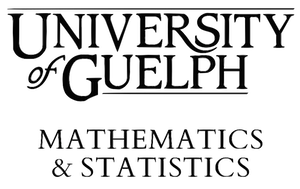Summerlee Science Complex 1504
SPEAKER: Blessing Emerenini, Oregon State University
ABSTRACT:
Influenza is a viral infectious disease of high importance and widely studied around the world. In this study we model the within-host transmission of influenza in a continuous deterministic setting (system of ordinary differential equations) and a discrete stochastic framework (discrete-time Markov chain model). Previous models omit cellular restoration through cellular death, which is a key component for the possibility of chronic infections. We thus investigate the effect of cellular restoration on the spread of influenza within the host. The conditions or existence of a disease-free equilibrium and biologically relevant endemic equilibrium are stated in terms of the basic reproductive number, $\mathcal{R_{0}}$. When $\mathcal{R}_0$ is less than or equal to one the disease-free equilibrium was found to be locally asymptotically stable and the endemic equilibrium was unstable. For $\mathcal{R}_0>1$ the equilibrium behaviors were reversed, which is consistent with models that do not include cellular restoration. Finally, while Discrete-Time Markov Chains are rarely used in endemic models with more than two variables, we develop a method designing the necessary transition matrix to utilize DTMC instead of CTMC in endemic modeling.
